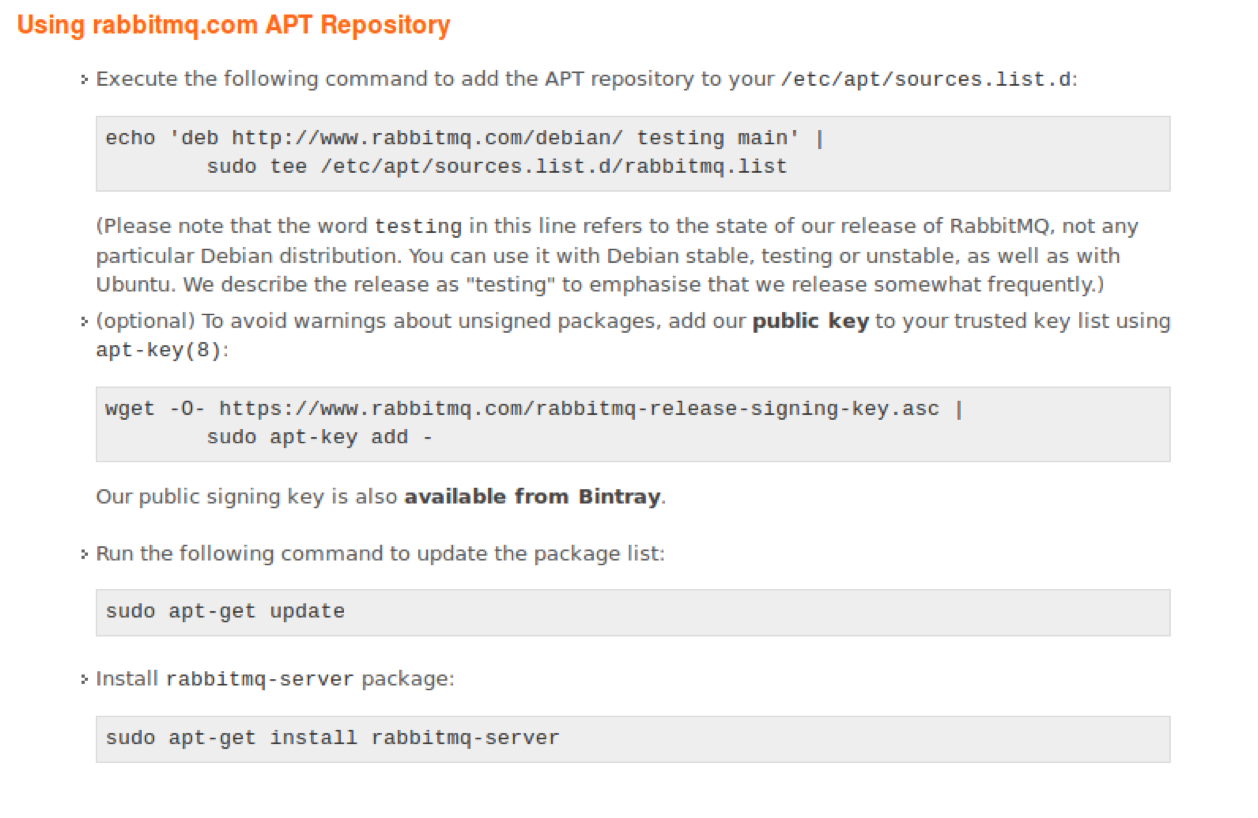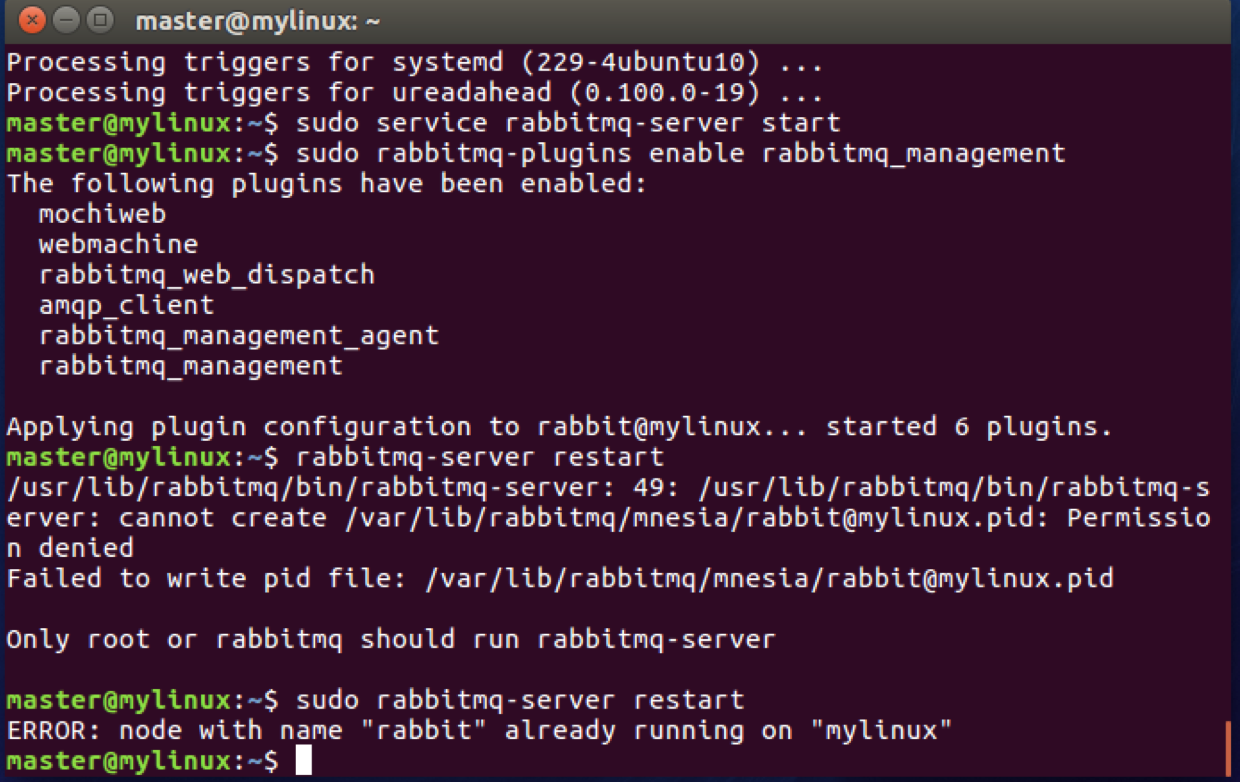In this article, we will discuss about installing RabbitMQ in Ubuntu. This will be same as we discussed for Windows but instead of installing using exe file, we will be installing using the APT repository as mentioned in the RabbitMQ website.

Figure 1 – Using APT Repository to install the Rabbit in Linux box
So, here I am following the steps mentioned in the RabbitMQ website. First I am adding the APT repository to /etc/apt/sources.list.d and then updating the package list as below:

Figure 2 – Executing the first two steps
Now installing the RabbitMQ Server and it will get all the dependencies needed for installing the server unlike installation we have done in Windows.

Figure 3 – Installing Rabbit server
I did not add public key but as specified in the instructions, its advisable to add public key in order to avoid warnings. Now to enable Rabbit Management Console, execute the commands:
sudo rabbitmq-plugins enable rabbitmq_management
sudo rabbitmq-server restart

Figure 4 – Enabling the Rabbit Management Console
If everything goes well, then you should be able to browse the management console by typing the URL http://localhost:15672.

Figure 5 – RabbitMQ Management Console
For installing RabbitMQ in Windows Operating System, follow this link.

